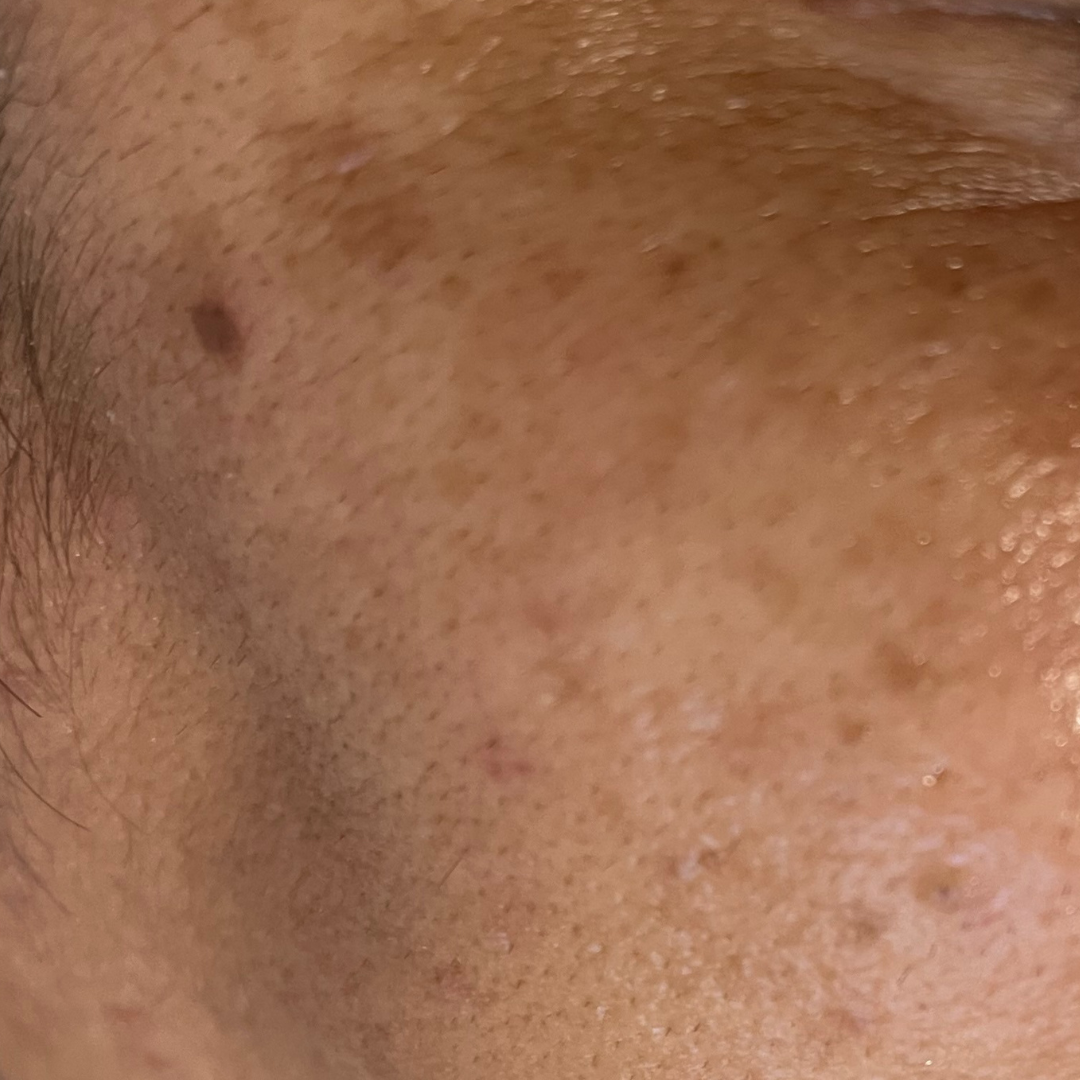
Olive skin tones and over 40? Typical pigmentation concerns and solutions
Share
Olive skin tones are unique and beautiful, but as we age, our skin can develop pigmentation concerns that can be more noticeable on this skin type. Here are some typical pigmentation concerns and solutions for individuals with olive skin tones over 40:
-
Melasma: Melasma is a condition characterized by brown patches on the face that often occur in women during pregnancy or while taking hormonal birth control. To treat melasma, try using a product containing ascorbic acid, azelaic acid, kojic acid, or niacinamide, which can help lighten pigmented areas of the skin. A study found that a topical 5% ascorbic acid solution combined with 0.5% ferulic acid and 1% vitamin E improved melasma in 85% of patients after 12 weeks of use (1).
-
Chemical peel: Chemical peels are a popular solution for pigmentation concerns. They work by removing the outermost layer of skin to reveal brighter, more even-toned skin underneath. For olive skin tones, a peel containing lactic acid or azelaic acid can be effective. A study found that a 20% azelaic acid peel improved pigmentation in 80% of patients after 3 treatments (2).
-
Microneedling: Microneedling is a procedure that involves creating tiny punctures in the skin to stimulate collagen production and improve the appearance of pigmentation. A study found that microneedling combined with vitamin C serum improved melasma in 90% of patients after 6 treatments (3).
-
Lasers: Lasers can target pigmented areas of the skin and break up the excess melanin. For olive skin tones, a laser like the Q-switched Nd:YAG can be effective. A study found that a Q-switched Nd:YAG laser improved pigmentation in 81% of patients after 3 treatments (4).
-
RF microneedling and IPL: RF microneedling and IPL are other professional treatments that can help improve the appearance of pigmentation. RF microneedling uses radiofrequency energy to stimulate collagen production and improve skin texture, while IPL uses intense pulsed light to target pigmented areas of the skin.
Overall, there are various effective solutions for pigmentation concerns in individuals with olive skin tones over 40. Incorporating ascorbic acid, azelaic acid, kojic acid, or niacinamide into your skincare routine can help improve the appearance of pigmentation. Professional treatments like chemical peels, microneedling, lasers, RF microneedling, and IPL can also be effective.
Head to Instagram to ask Mr. Lulu about product or treatment suggestions - Click here
Sources:
- Trivedi, M. K., et al. (2019). A randomized, double-blind, placebo-controlled study to evaluate the efficacy and safety of a novel combination of ascorbic acid, ferulic acid, and vitamin E in the treatment of melasma. Journal of Cosmetic Dermatology, 18(2), 591-597.
- Verallo-Rowell, V. M., & Verallo, V. (2015). A novel use of a lactic acid/salicylic acid/azelaic acid topical solution in a regimen for the treatment of mild to moderate acne vulgaris. Journal of Cosmetic Dermatology, 14(4), 309-313.
- Asawanonda, P., & Klahan, S. O. (2010). Intradermal radiofrequency combined with vitamin C mesotherapy for treatment of facial hyperpigmentation: a pilot study. Journal of Cosmetic Dermatology, 9(3), 242-247.
